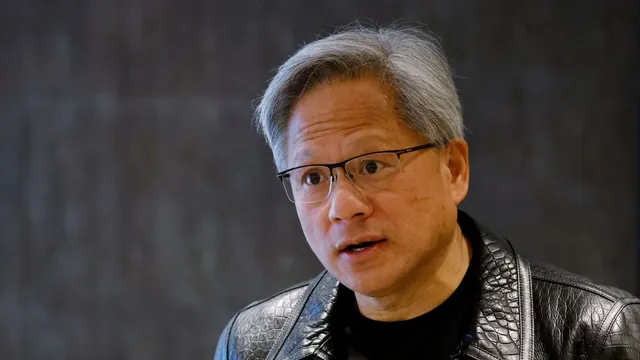- By Prateek Levi
- Sun, 19 Oct 2025 06:27 PM (IST)
- Source:JND
US tariff policies and export restrictions have faced criticism from many big companies, and now Nvidia chief Jensen Huang has also strongly condemned these export restrictions. These restrictions, Huang claims, have wiped out the company's standing in China, expressing that this policy has cost America one of its largest markets.
We went from 95% market share to 0%,” Huang iterated in New York on October 6 while attending the Citadel Securities Future of Global Markets 2025. “I can’t imagine any policymaker thinking that’s a good idea—that whatever policy we implemented caused America to lose one of the largest markets in the world to zero.” he added.
ALSO READ: Bad News For Samsung Fans! Galaxy S26 Launch Delayed, Now Expected In This Month
According to the Nvidia chief, their forecast for revenue from China is now assumed to be zero. zero,”" “In all of our forecasts, if there are any shareholders out there, we’re assuming zero for China. If anything happens in China—which I hope it will—it’ll be a bonus,” he expressed.
ChatGPT said:
Nvidia CEO Jensen Huang emphasised the critical role of China in the global tech ecosystem, calling it “the second-largest computer market in the world” and “a vibrant ecosystem”. He cautioned that limiting access to this market would hurt both China and the U.S., adding, “I think it’s a mistake for the United States not to participate.”
Since 2022, Nvidia’s top-tier AI chips—the A100, H100, and H200—have been prohibited from export to China. While the company received clearance to sell the lower-end H20 chip specifically designed for the Chinese market, Beijing has flagged security concerns related to that product.
Huang warned that excluding Nvidia from China could strengthen competitors like Huawei Technologies and undermine the U.S.’s leadership in the tech sector. “What harms China could oftentimes also harm America, and even worse,” he said.
He also pointed out the importance of Chinese talent to the future of innovation. “The developers are vitally important for any software industry, and China has about 50 per cent of the world’s AI researchers. It’s a mistake not to have those researchers build AI on American technology.”
Remaining cautiously optimistic about future relations, Huang noted, “Hopefully, we will continue to explain and inform and hold on to hope for a change in policy.”
Previously, Huang expressed disappointment over a report that China had banned major domestic tech firms from buying Nvidia’s high-performance chips, a major blow given their importance in generative AI development.
Nvidia, now the world’s most valuable company by market cap, has long viewed China as a key market. However, geopolitical tensions between Washington and Beijing have left the chipmaker caught in the middle.
The U.S. government has barred the export of Nvidia’s most advanced chips to China and, as of last month, confirmed that Nvidia will be required to pay 15 per cent of revenue from some AI chip sales in the country to the U.S. government.
In response, Beijing has cited national security risks associated with Nvidia's technology and has encouraged Chinese firms to shift toward domestic chip providers.
“We can only be in service of a market if a country wants us to be,” Huang said during a press event in London, referencing a Financial Times report.
"I'm disappointed with what I see, but they have larger agendas to work out between China and the United States. And I'm patient about it. We'll continue to be supportive of the Chinese government and Chinese companies as they wish."
The Financial Times, citing anonymous sources, reported that China’s Cyberspace Administration has directed companies to stop testing and buying Nvidia’s restricted chips.
ALSO READ: Best Gadgets To Buy This Diwali 2025: iPhone 17, OnePlus Nord 5, And More Top Tech Picks
This development reportedly follows a regulatory decision by Chinese authorities accusing Nvidia of violating antitrust laws.
Analysts see these moves as part of China’s broader strategy to reduce reliance on U.S. technology and boost domestic production through companies like Huawei.

